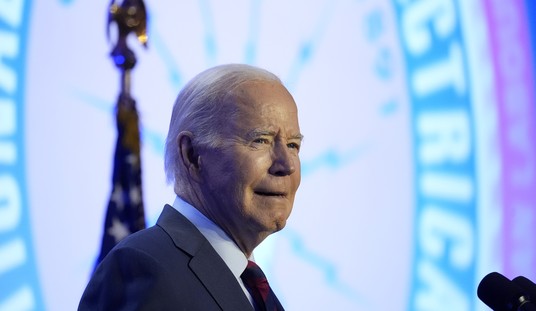I’ve lost track of how many times the story has repeated itself, but the sorry saga of the deficit and debt talks between the White House and Congress now seems stuck in an endless loop of compromise and collapse. And I’m not sure I can tell you how many grand bargains have been proposed to solve our fiscal crisis.
Let’s see … there is the ten-year, $3 trillion deal Speaker Boehner and the president were working on, and the new and improved Gang of Six proposal in the Senate, and Cut, Cap, and Balance in the House (defeated but probably not yet dead), and the McConnell-Reid scheme to cede control of the debt ceiling to the White House, and Joe Biden’s deal and Paul Ryan’s budget, and even a few nostalgic glances back at the Simpson-Bowles Commission, which presented their findings last December, was thanked for their service, and shown the door.
Have I left anything out?
Regardless of whether these various stratagems tilt to the left and emphasize tax increases or veer to the right and depend on spending cuts, they all share a common characteristic: they are huge, comprehensive, multi-year plans relying on complicated actuarial calculations that are predicated on the behavior of future Congresses not yet seated and future presidents not yet elected or re-elected. The only reason not to trust these forecasts is that they have never, ever been accurate.
A quick example here: in 1966 the House Ways and Means Committee estimated that by 1990 the annual cost of Medicare would be around $12 billion. They were only off by a factor of 9. Medicare cost $107 billion by 1990 and it has almost quintupled since. My guess is the druids at Stonehenge probably had a higher rate of success.
As I watch this budget narrative unfold, I find myself recalling a sage piece of advice I received when I was a young actor beginning my career in New York almost 40 years ago. Like a lot of stage-trained performers, I discovered when I first began to work in film and TV that my technique which had been honed in front of large audiences was too big for the camera. On my first film set after a couple of unusable takes, a wise director took me aside and said: “Young man, if you ever hope to succeed in this medium you need to learn this important lesson: less is more.”
As sound as this counsel was for a young actor, it is even more prudent for veteran budget negotiators who seem to insist on crafting bargains that are clearly too large for the lens through which most of us now view economic reality. Even the most casual observer of Washington politics has learned that no sitting Congress can bind a future one, so any compromise which stretches beyond the next election cycle is a false promise effortlessly broken after all the ballots are counted and a new majority takes power. The painful conclusion from these grand legislative schemes is that they almost always do more to enhance the fortunes of the politicians who craft them than they do for the public they are intended to serve.
So how do we, assembled minions of beleaguered taxpayers and frustrated voters, apply the “less is more” principle to our deficit and debt problems? First, we should insist on real and immediate cuts for the fiscal year in which they are enacted. No more out year totals based on projected spending or economic growth estimates which are nothing more than guesswork. Make Congress and the administration live under the cuts and/or revenue raisers they enact in the year in which they enact them. In the acting profession this is referred to as “being in the moment,” in the political world it is called accountability. I would rather have a series of two-year budget agreements that have to be evaluated and revised after every election than a far reaching compromise which kicks all the tough choices into the future.
And while we’re at it, we may want to take the “less is more” principle to the next level. Rather than continuously enact new and tortuously complex budget laws, why don’t we toss out the ones on the books that clearly are not working?
First on my list would be the Congressional Budget and Impoundment Control Act of 1974. Ostensibly designed to impose a new budgetary discipline on Congress, the legislation was actually an attempt to chastise Richard Nixon who was using his presidential authority to not spend all of the monies Congress was appropriating. It created brand new budget committees in the House and Senate, established a new bureaucracy — the Congressional Budget Office — to act as a kind of scorekeeper, and promised to correct such persistent problems of the day as regular budget deficits, habitually late appropriation bills, dependence on the short-term spending measures known as continuing resolutions, and of course fix the uncontrolled growth of entitlements, mainly Social Security and Medicare. The assumption at the time was that Congress would behave much more responsibly if faced with the reality of annual budget targets.
That was over 35 years and how many trillions of deficit dollars ago? Prior to 1974, it was big news if Congress reached the end of the fiscal year without passing all of its appropriation bills. Now it’s big news if they do.
Over the last three and a half decades Congress has periodically owned up to the Budget Act’s failure by writing new laws to correct the flaws in the old one. There was the Gramm-Rudman-Hollings Act of 1985. This statute essentially threatened the legislative branch with automatic spending cuts and tax increases if it was unable to keep its fiscal house in order. The discipline proved too draconian for both Republicans and Democrats, however, and by 1990 a new Budget Enforcement Act departed from the hard deficit targets of Gramm-Rudman in favor of the kinder and gentler pay-as-you-go provisions which mandated that every federal dollar spent had to be met with a commensurate cut in discretionary or entitlement accounts … or a tax increase. How do you think that played out?
And then in 1996, a Democrat president named Bill Clinton asked a Republican Congress to give him a line-item veto to restore to his office the impoundment authority lost in 1974. And they did, and we came full circle until 1998, when the Supreme Court declared the Line Item Veto Act of 1996 unconstitutional.
So now what? More legislative vehicles substituting elaborate process reforms in the future for good old-fashioned fiscal discipline in the present? When Congress and the White House temporarily got their act together in the mid ‘90s and produced budgets that actually generated surpluses, as well-deserved as that accomplishment was it probably created a false confidence in both the Republican and Democrat camps. Budget deficits were deemed to be cyclical problems that could be fixed through cunning compromises and then promptly forgotten. Now our dilemma is structural, and any solution bringing us to fiscal security as a nation will require the same kind of constant vigilance we demand for our national security. In other words, this Congress and this White House and all subsequent Congresses and presidents will need to regularly reduce and restructure our tax and spending policies over many years to come. And we on the sidelines need to insist on annual budgets with real and measurable cuts and shrinking baselines.
I eventually learned how to apply the “less is more” axiom to my acting career. Our senators and members of Congress need to learn how to apply it to their roles as policymakers. If they do not they will probably learn too late that the converse is also true: when it comes to government, more will ultimately mean a lot less.








Join the conversation as a VIP Member